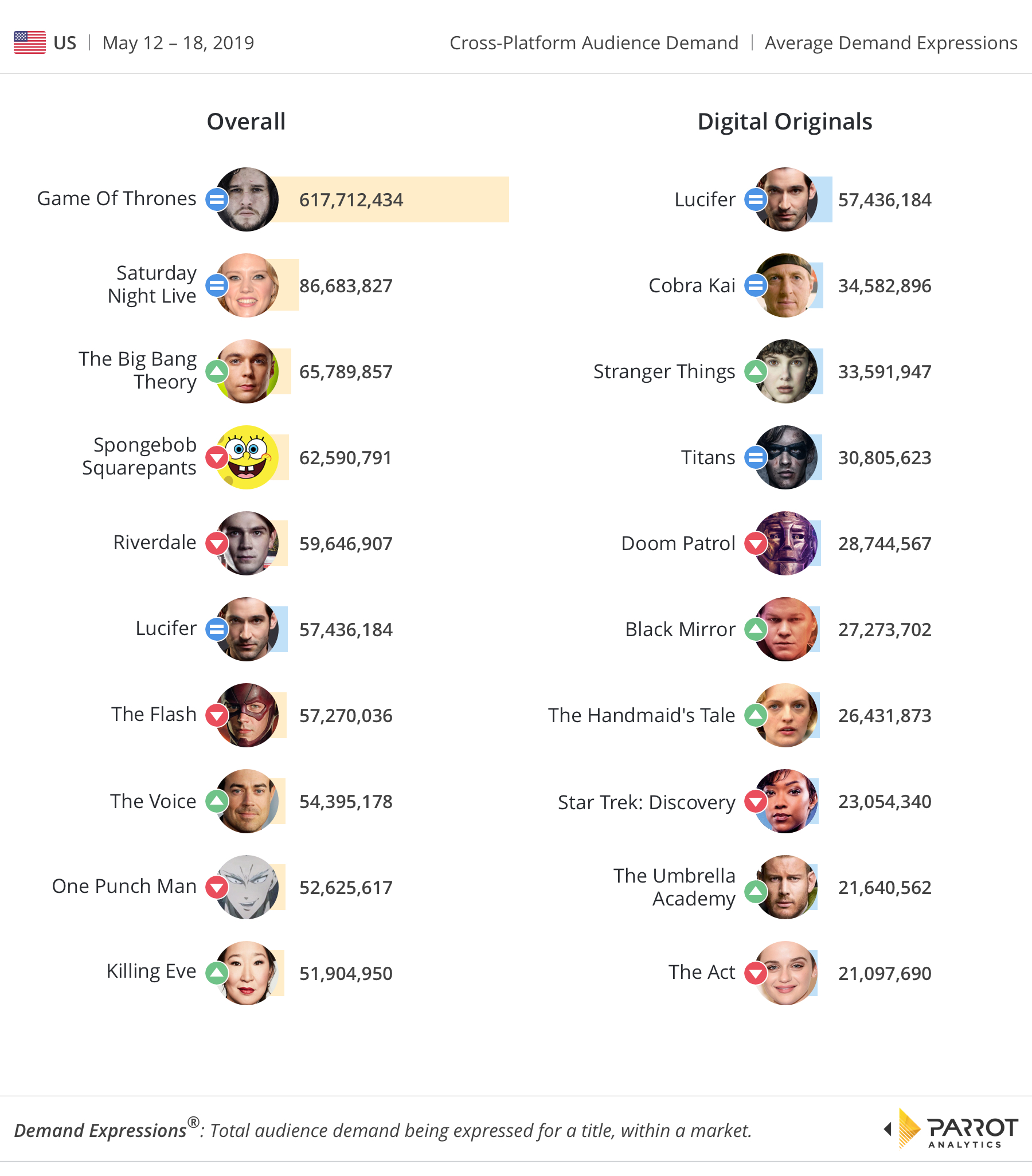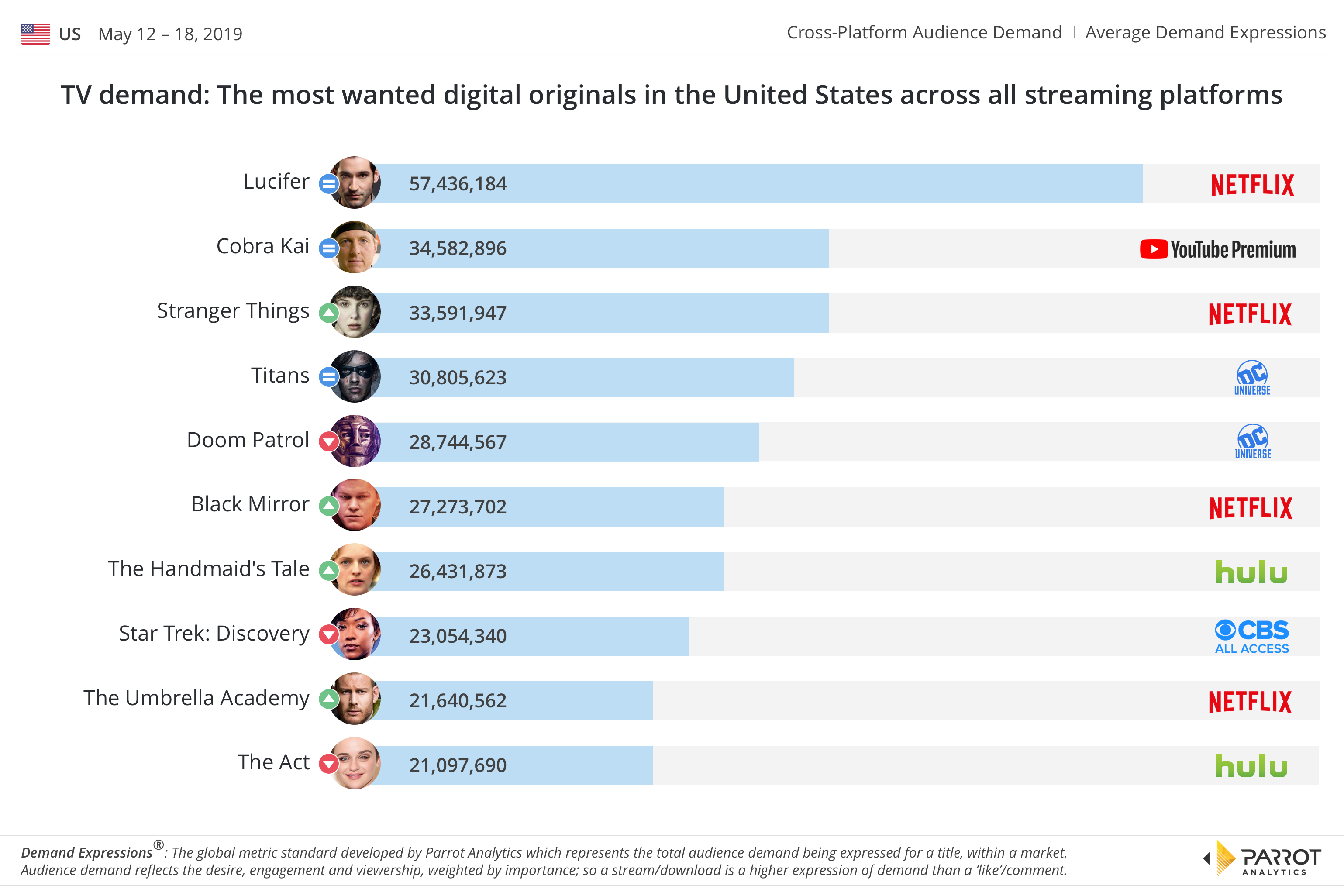Image: The Big Bang Theory and Game of Thrones, CBS and HBO
Two significant hits on our TV demand chart, Game of Thrones and The Big Bang Theory, have finished within days of each other. Whether those shared viewing experiences represent a relief, or a celebration, for audiences who have watched all of the episodes will be the subject of debate endlessly.
HBO’s mythical drama soared to an all-time high with its penultimate episode, generating a daily audience demand of 617 million in the U.S. alone for last week. Despite plentiful criticism and venting on social media, and maybe even some love – last week’s daily demand average will likely be eclipsed once the numbers from this Sunday’s finale are incorporated for next week’s chart.
Meanwhile CBS’s The Big Bang Theory has concluded its 12-year run last Thursday with a daily audience demand of over 65 million. The lingering question is whether in an age of all-you-can-watch viewing these types of mega shows can in fact be replicated – or whether each successive generation of “hits” will inevitably be narrower and more “siloed off” than their trailblazing predecessors. One can only speculate, given the new global streaming services joining the fray over the course of 2019 and 2020.
The other pop culture monolith, besides The Big Bang Theory and Game of Thrones, is the wildly successful Netflix transplant Lucifer, now the most in-demand title on our digital original chart. In its latest incarnation, Lucifer has mostly stuck to its police procedural roots, which seems to have done well to increase its fans’ engagement – and indeed the shift to Netflix last month will continue to grow its global footprint. In the US, we have observed a 17% week-on-week demand increase as American audiences are (re-)discovering whether Lucifer Morningstar and his friends are going to hell.
This week, Black Mirror became the subject of debate in TV industry circles as the gold standard science-fiction series that has recently maximized the opportunity to engage with its followers using innovative digital initiatives (“Bandersnatch”) – a feat that was previously unattainable when it was on a programmatic broadcaster. Demand for Black Mirror has jumped two-fold when the fifth season trailer was unexpectedly released on May 15th.
The Handmaid’s Tale from Hulu returns for a third season on June 5th, and there’s still time for American audience to start watching the dystopian series or re-watch earlier seasons. Audience demand has increased by 9% week-on-week.
Returning to the overall chart, The Big Bang Theory ends its 12-season run on CBS with a long, hugely successful series of 279 episodes. The comedy, which fits squarely within network traditions, won many Emmy Awards and made lots of people laugh and cry. The Big Bang Theory was embraced enthusiastically by TV critics and viewers alike as an evergreen favorite.
Rounding out the Top 10, we have seen Killing Eve leaping from position #17 to #10, featured for the first time in the overall American chart. The female-led assassin thriller written by Phoebe Waller-Bridge, was the big winner at the BAFTAS last month with three awards (including leading actress for Jodie Comer). The last episode of Killing Eve season 2 will air on Sunday on BBC America and AMC.



